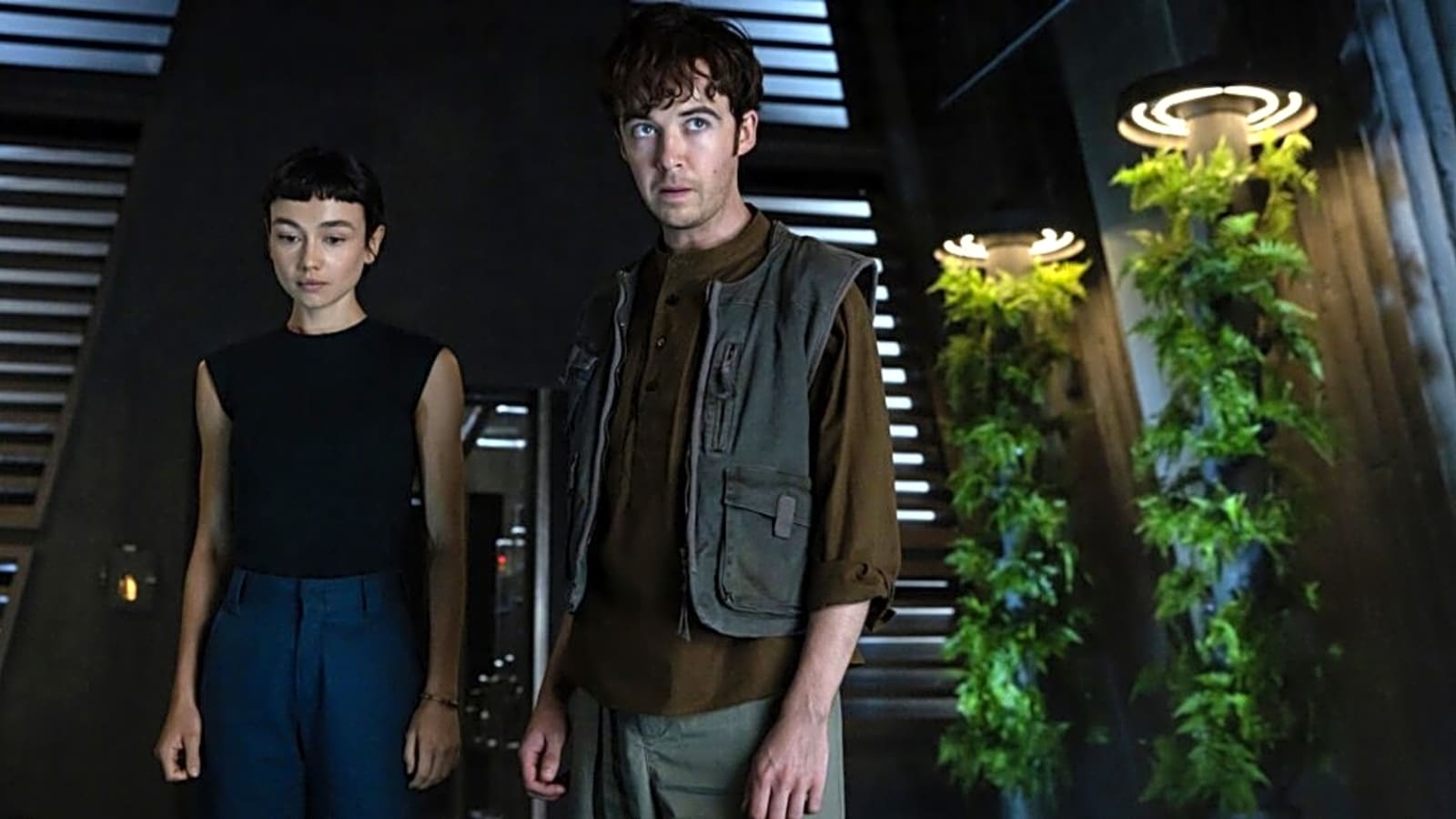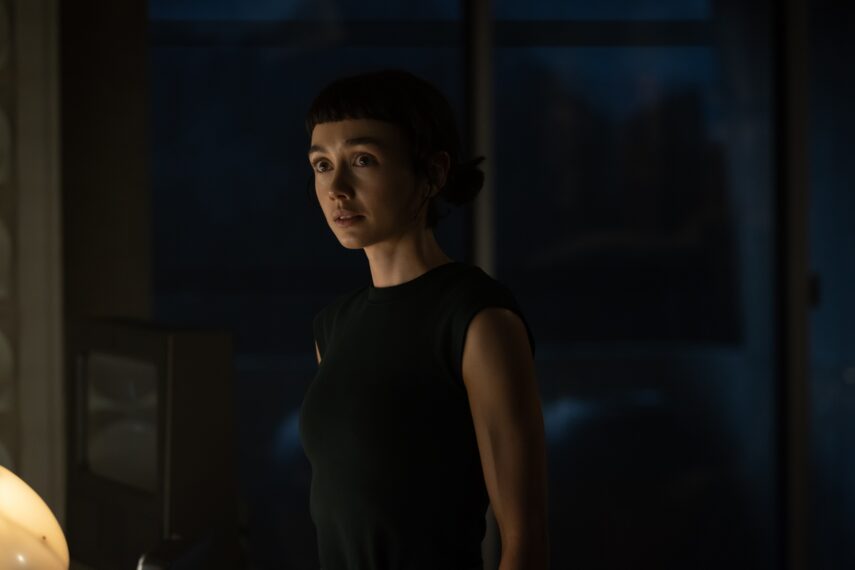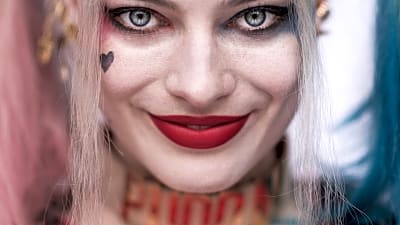
[Warning: The below contains MAJOR spoilers for Alien: Earth, Season 1 Episode 8, “The Real Monsters.”]
Alien: Earth has closed out its first season, leaving the door wide open for plenty more storytelling in this world carefully crafted by Noah Hawley.
As viewers who tuned in saw, Wendy (Sydney Chandler) mobilized her fellow hybrids to rise up and break free of their imprisonment on Neverland, only to then round up those who had wronged them. The hybrids used their advanced abilities to tap into various systems, but it was Wendy’s ongoing connection to the Xenomorph that proved fruitful as she and the Lost Boys captured and imprisoned Kirsh (Timothy Olyphant), Morrow (Babou Ceesay), Dame Sylvia (Essie Davis), and the hybrids’ creator, Boy Kavalier (Samuel Blenkin).
Wendy had ultimately freed her brother, Joe (Alex Lawther), after she was encouraged to by her fellow hybrids, but tension seemed to remain between the pair as he joined the rebel group, which included the Xenomorph outside of the cage containing the prisoners. As Wendy declared, “Now we rule,” it felt as if the real story was only just about to begin.
Below, Hawley answers some of our burning questions about Wendy’s path, her connection with the Xenomorph, that eerie eye midge takeover, and hopes for what’s next if the series returns for Season 2.

Patrick Brown / FX
Your shows are known for having a moral center represented in a character. Is that present by the end of the season?
Noah Hawley: I think from a character point of view, I would say Arthur was really the moral center of the show, and then obviously we got rid of him. So, on some level, this show is a push-pull between whether Wendy is gonna choose human or other, and her brother, obviously, is a big pull towards staying human emotionally. But even he seems to be really worried about how much power she has.
The reality is these kids have all been used and manipulated and tricked, and traumatized. They have more power than normal children have, and so they have taken control in this moment, but potentially in a very Lord of the Flies kind of way. It doesn’t necessarily mean that they’re gonna make everything good for everybody. It means they’re defending themselves, and there’s a lot of hurt and anger there that’s not a great place to make decisions.
Is Wendy’s bond with the Xenomorph as strong as it appears by the end? Is that something you’d explore further in a second season?
There’s definitely a lot of story left to tell, and I do think there’s hubris to it. Wendy has this idea that these creatures didn’t ask to come here, and she’s kind of anthropomorphizing them, and she literally says, “Joe, this one could be good.” This Xenomorph, this great white shark, this alien monster could be good, and you’re like, “Yeah, I don’t think so.” I think maybe you could create an ally out of it, maybe it’s a pet for a while, but we’ve seen how that goes with wild animals. That’s the big question mark, right? You can’t control wild things, and if that’s your genius strategy to rule, life’s gonna show you what it has in mind for you.
Wendy faces her identity in the episode, acknowledging she isn’t Marcy anymore, but that she’s not sure she’s Wendy either. Meanwhile, Curly (Erana James) declares she’s Jane. How important was it to include that identity evolution in the finale?

Patrick Brown / FX
Would the adult that we end up being be a composite of genetics and our nature and nurture, and the person that we think we’re supposed to be, and the person that we want to be, so much of what that process is transformative over time. I was always really intrigued, writing this show, by the question of, “How do children grow up?” So much of it is biological; hormones are introduced, and your brain literally rewires itself in your adolescent years, your body grows, and there are so many changes. If you take a child’s mind and put it into a synthetic body, you don’t get any of that. So, what is that maturation process? There’s an adolescent simulation software or something, and yet, the moment that they’re in adult bodies, people want to treat them like adults. They’re kind of trapped in this, in this nowhere zone.
Where do Wendy and Joe stand with each other by the end of the season? He’s not caged, but he doesn’t look comforted by the team-up with a Xenomorph.
I think he has this romantic notion, as he says, of being a family, and when he tells her, “I’m gonna get us out of here,” and she says, “What if I don’t wanna go?” On some level, he thinks he knows better than her because she’s a child. And she’s saying, “Well, everyone is telling me what I should be or what they think I am, but I’m not Marcy and I’m not Wendy. I don’t know what I am yet. I’m figuring it out, but it’s my life, and so it’s for me to figure out.” To the degree that he can support her in that and subjugate his own parenting instincts, probably they’ll continue to have a strong relationship, but if it becomes a push-pull for who owns Wendy on some level, then it’s gonna be rough.
The T. Ocellus, a.k.a. eyball species of alien, finds a new home in Arthur before the episode’s end. Does that mean there’s a chance David Rysdahl could be back as a decaying monster in a second season?
Well, I mean, when we first really meet the eye midge, it’s walking around like a dead cat, you know what I mean? And so, it can certainly reanimate, but I don’t think that’s a permanent solution. It’s just a way to walk around on some level, but I think it completes this story of Arthur from the saint of the show to this sort of final corruption of this creature. I can’t really say too much about it except to say, I don’t think we’re done with Arthur as a character or as a story in the show.
He was fantastic this season; his death was so heartbreaking, even if we knew what would happen after his encounter with the facehugger.
I know. I did that. I made them seem the most like children and hold his hands, and you’re like, “Oh, thank god there’s a grown-up who actually cares about them,” and then I killed him.
Obviously, Boy Kavalier’s name describes his approach to most things, but is there any level of concern on his end as he finds himself tied up alongside others in a cage that’s surrounded by the Lost Boys and a Xenomorph?
Wendy sees through him in a way that I think is really cutting. It gets to the core of something ugly that he doesn’t like to talk about or admit to. But then, in the “Now we rule” moment… There’s this word that was invented in Silicon Valley, this disruptor idea, which is to take an existing system and basically create chaos within it so that you can come up with a better way. It’s pitched as this good thing, but really it’s this incredibly destructive thing.
You don’t often end up with a better thing; you end up with a different thing in which you basically just moved money to you versus the thing you’ve disrupted. I think what he realizes is that these hybrids that he’s created, he sees the potential for a complete disruption to everything, and it renews his faith in himself that he’s a genius in that moment, because he’s like, I made them and they’re gonna change everything. There’s clearly something inside Boy Kavalier that just wants to burn the world down.
Alien: Earth, Season 1, Streaming now, Hulu
More must-reads:
- The definitive solo Ozzy Osbourne playlist
- 'Gen V' stars Jaz Sinclair, London Thor, and Derek Luh preview season 2 in new Yardbarker interview
- Do you know all of these 20 facts about 'Die Hard'?
Breaking News
Trending in Entertainment
Customize Your Newsletter
 +
+
Get the latest news and rumors, customized to your favorite sports and teams. Emailed daily. Always free!








